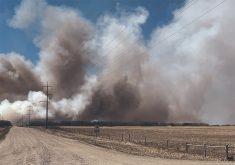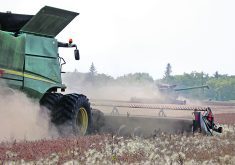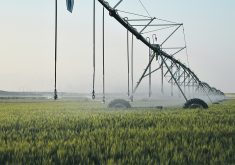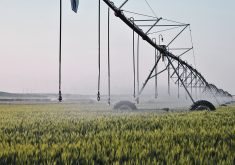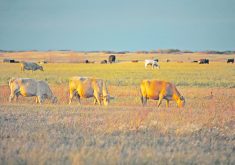We’ve all heard the forecast — more hot, dry weather is in store for the month of August. As an accountant, you might expect me to advise conserving cash, tightening down the balance sheet and halting capital and financing decisions.
Although these all come into play, I believe that mindset and attitude are most important.
What can be done to mitigate the damage?
You have heard it before and I will say it again: don’t panic. With mental health awareness at an all-time high in the agriculture industry, the first pillar of surviving to fight another year is to stay calm and don’t be rash.
Read Also

Kochia has become a significant problem for Prairie farmers
As you travel through southern Saskatchewan and Alberta, particularly in areas challenged by dry growing conditions, the magnitude of the kochia problem is easy to see.
Mindset is one of the key differentiators I see among primary producers these days. Those who can continue to move forward as an optimist will be the most successful. If you wallow in pity too long, it can hurt your decision making. Don’t let one bad year create a slew of bad decisions moving forward.
In terms of damage control, trust that you have made the correct decisions up to this point to weather the storm. I work a lot around insurance and for most producers another crop disaster will not be the worst thing that happens to them this year.
It’s important to be proactive.
In a year where the wheels are falling off, get your numbers up to date and fast. Figure out what the worst-case scenario could look like, and where the balance sheet and income statement will end up by year-end, and then get started on a strategy for survival or even to flourish.
Now, after you are prepared, it’s time to get your advisers and professionals up to speed. As a primary producer and entrepreneur, you should not hold this type of burden alone. You must use your advisers (beyond family and close employees) as a sounding board to relieve some stress and to confirm that your strategy moving forward is sound. Your relationship manager will be your first line of defence if they have time to prepare and help you weather this storm.
It’s also important to be honest.
I see this one way too often in agriculture. In fact, many of my consulting clients will admit they hold back how bad they think it really is.
So, be honest about what the conditions look like. If they look like a 10-bushel canola crop, let’s plan on a 10 and hope for a 20. Too often, we believe that what we tell ourselves to help us sleep will help us in the long run.
When it comes to financial management, the more truthful we can be upfront, the better the outcome for strategy and planning. I am now hearing rumblings that because of crop failure, prices will go on a run. I believe this, but until it happens, it is just another stress-mitigating tactic. Be conservative and be truthful.
Many of my most progressive and strongest clients have continued growing through the worst years because it can often be the best time for opportunities.
Drought in Western Canada is not new and if you have been farming long enough, you have already survived this. Weathering a drought is a routine aspect of farming.
Quit asking what now? Instead, start moving forward.





